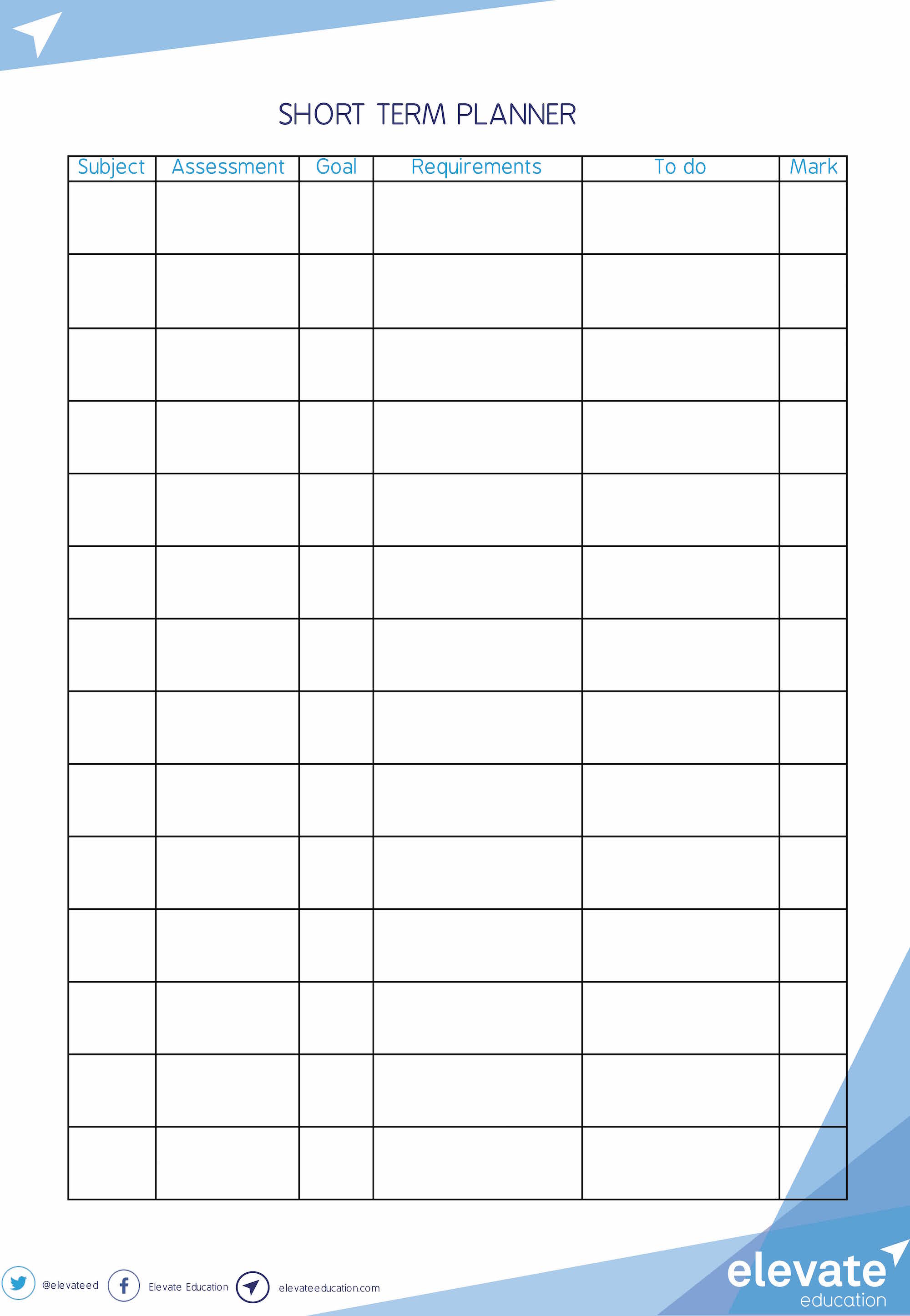Why are you studying?
To most of us, it will come as little surprise that the research shows the country’s top performing students, year-after-year, are the ones who have developed a clear reason to study.
Start Browsing
Start browsing
< Wait, I have a password

to your account
 Facebook
Facebook
< Wait, I don't have a profile yet
Reset Password >
to save your details
 Facebook
Facebook
< Wait, I already have a profile

Start browsing
< Wait, I have a password



Have you set yourself a goal? Do you need to get into a certain university and need a particular score to get there? Does this goal scare you?
Like a mountain climber staring up at the summit, it is easy to get demotivated by the enormity of the task ahead. The best climbers and the best students, instead set short term goals so that they can focus on the task at hand and stay motivated for the entire journey. Using a short term planner can help. Here's how it's done:
Let's say, for example, that your goal is to an A+ for your subjects. If this is the case, this can be a pretty intimidating goal for just about anyone. The first step is to break it into smaller pieces. Any large goal and be broken down into a series of smaller goals. Those smaller goals can then be broken down into specific tasks, which are always achievable. By following this process, you will make your journey much more manageable.
Firstly, you should break your subject down into the key assessments. Then each assessment is broken down into the relevant assessment criteria (ask you teacher about this). In order to achieve each piece of assessment criteria, we need to undertake a series of tasks. For example, let's take English. A student needs to write a language analysis essay as a key assessment. Therefore, the student may approach their teacher and ask them what are the main things that the teacher will be looking for when grading the essay. The teacher may say that the student should demonstrate a good understanding of how authors intend to persuade audiences and the various techniques they employ in doing so. The teacher may also say that the student needs to have a clear structure to their essay. So, in the short term planner, tasks could include "create glossary of persuasive techniques" as well as "write 2 practice essays."
The key to setting good short term goals, is to focus on the assessments - the stuff that leads up to your final grade. So you may have 4 assessments across a year - however many, you want to set yourself a goal for each one. This might be getting an A, or if you're currently getting C+, you could aim for a B or B+ on your next assessment. You then determine what tasks need to be completed in order to get that B or B+, and write them into you planner. For example:
Once you've filled out your short-term planner, all you need to do is focus on the tasks in the 'To do' column. Get through them, and move on. By shifting your focus to specific tasks, you allow yourself to see tangibly, practically, what you need to do to get top grades.
Finally, you can track your progress in the grade column. This allows you to see whether you are adequately preparing for your assessments and whether you are hitting the intended targets. By tracking your progress throughout the year across small assessments, you can get a motivational boost to keep going. On the other hand, if you're not doing as well as you intended, the short term planner gives you a perfect thing to take to your teacher and ask, "I did all of the things in this list and didn't get the grade I wanted. What can I do to improve?"
 -
-